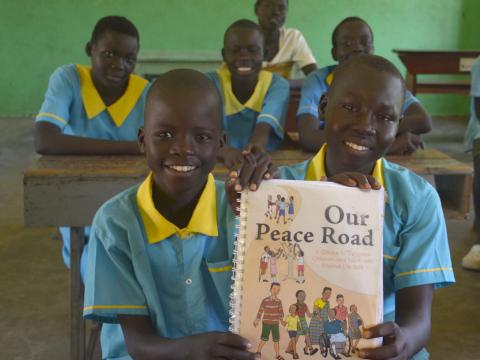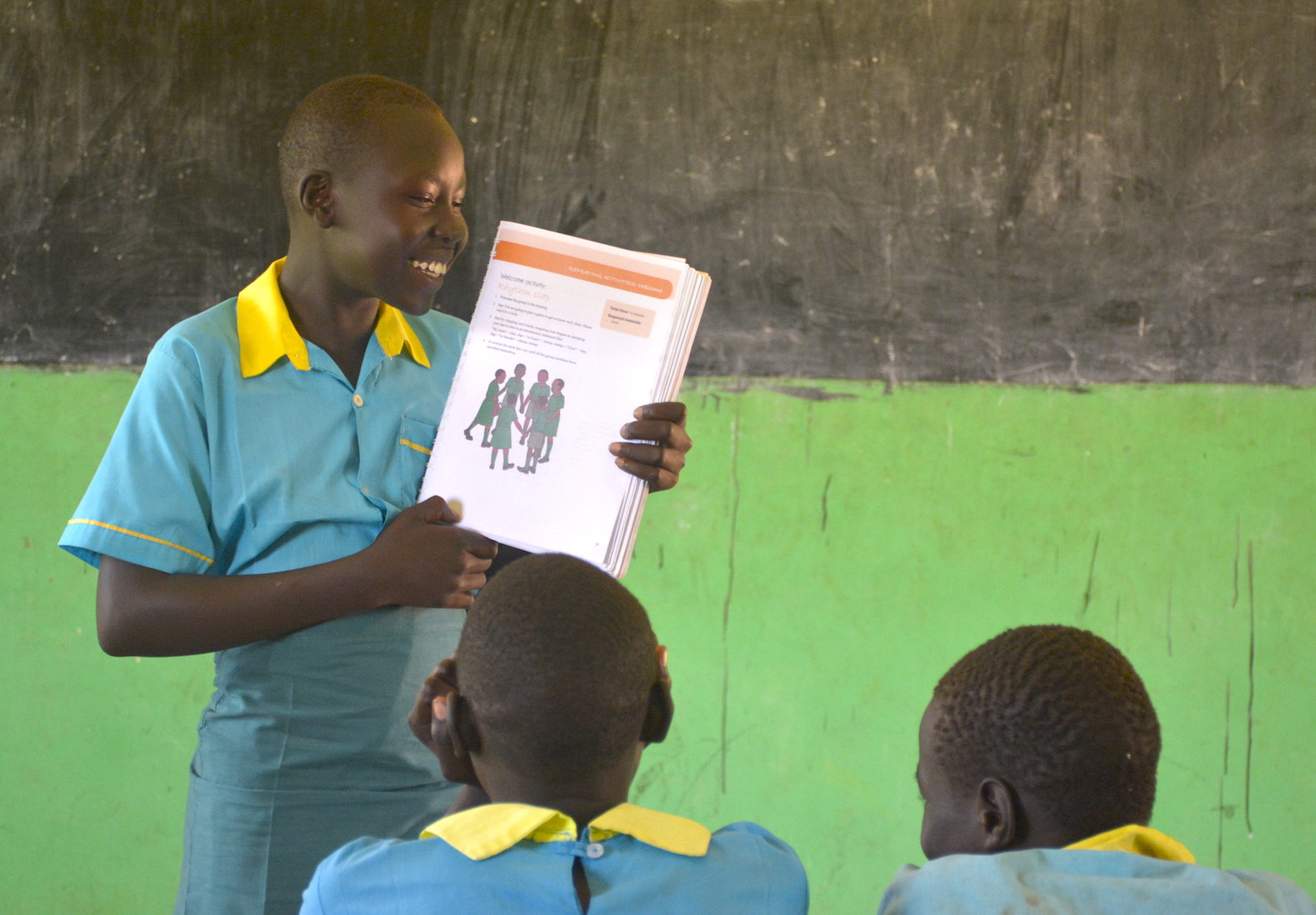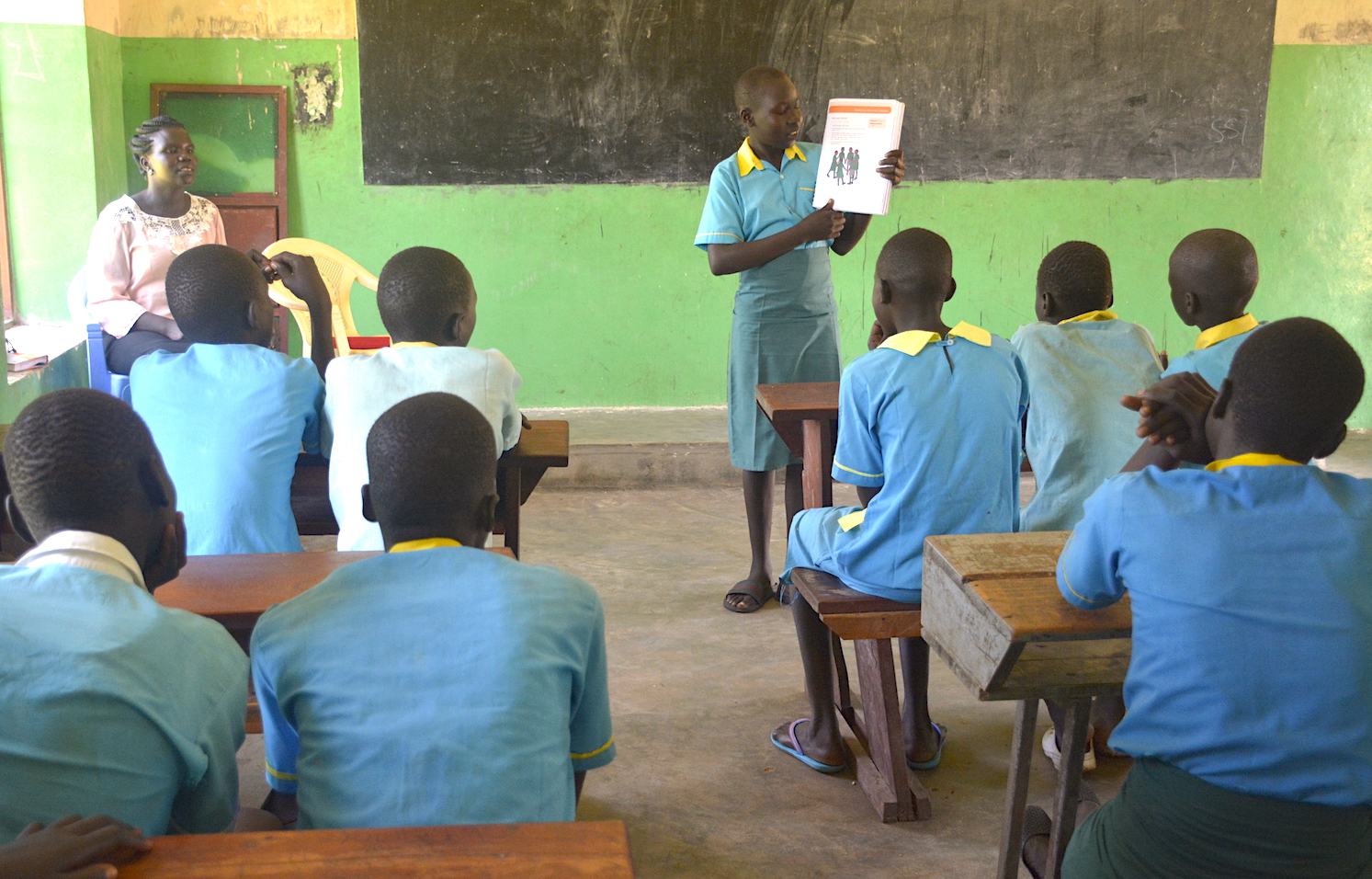200 children from peace clubs campaign: Give love a chance!

“Peace is like our daily food. We need it as much as we need food to live well and in harmony with one another for long life,” 12-year-old Quintino Ladu expressed.
South Sudan is composed of about 64 tribes. Due to this, a school can have learners coming from more than a dozen clans. Unfortunately, due to the protracted conflict and animosity among these groups, many children were born in this environment and grow up with a hatred for one another perpetuating violence in the communities.
In order to promote peace and cohesion, World Vision, through its education project integrated peace club activities aimed to teach children to love one another and help spread the message of understanding in their own families and communities.
Quintino Ladu, a primary six pupil says, “The peace club is important for us. I wish our parents are part of what we are learning from the Peace Road curriculum in school.”
Two thousand pupils have been reached with peace messages on embracing diversity, the value of gender equality, exploring who they are, having fun without hurting one another, promoting healthy relationships and peacebuilding.

Quintino shares, “We try to promote awareness on peaceful coexistence in the community especially among us children. As a result of peace clubs, gradually, our behaviors have changed a lot.”
Imoya Rebecca, a teacher in All Saints’ Primary School and peace club tutor shared that many of the children once have bad habits such as smoking, drinking alcohol, getting absent from school and fighting with their parents.
These have changed due to the efforts of the peace club members in raising awareness in the community. The children live in Rajaf County (divided into East and West) in Juba, the country’s capital, with an estimated population of 24,549 composed of a mix of people from different states.
“I used to fight a lot with my friends both in school and at home. This has changed. Instead, I now mediate peace between children, which I intend to continue. We children can contribute a lot to peacebuilding in our communities and even the whole country”, explains Quintino.
Quintino, who dreams of becoming a journalist in the future, further adds, “The club will keep on advocating for peace in Rajaf East because if there is peace in the communities then there will be peace in the country.”

Another club member Rebecca Keji shares, “We use poems, dramas, and songs on peace as tools for advocating for peace in our campaign.
“She further continues, “To have peace, we need to forgive those who have wronged us. That is what we teach and do as peace club members. The feeling of relief we get after forgiving can hardly be explained.”
World Vision established peace clubs with 50 members each in the Somba, All Saints, Gumbo Basic and Rajaf West primary schools. Apart from promoting peace starting with children, the clubs also aim to help improve the holistic spiritual nurture of boys and girls in South Sudan.
Guo Rose Konyo, World Vision’s former Education Officer quotes Nelson Mandela, “No one is born hating another person because of the color of his skin, or his background, or his religion. People must learn to hate, and if they can learn to hate, they can be taught to love, for love comes more naturally to the human heart than its opposite.”
In 2019, World Vision’s education program has reached 210,780 children in South Sudan and strives to go further in helping the country’s most vulnerable children.
WATCH video: Children's prayer for peace
Story and photos by Scovia Faida Charles Duku, Communications Officer